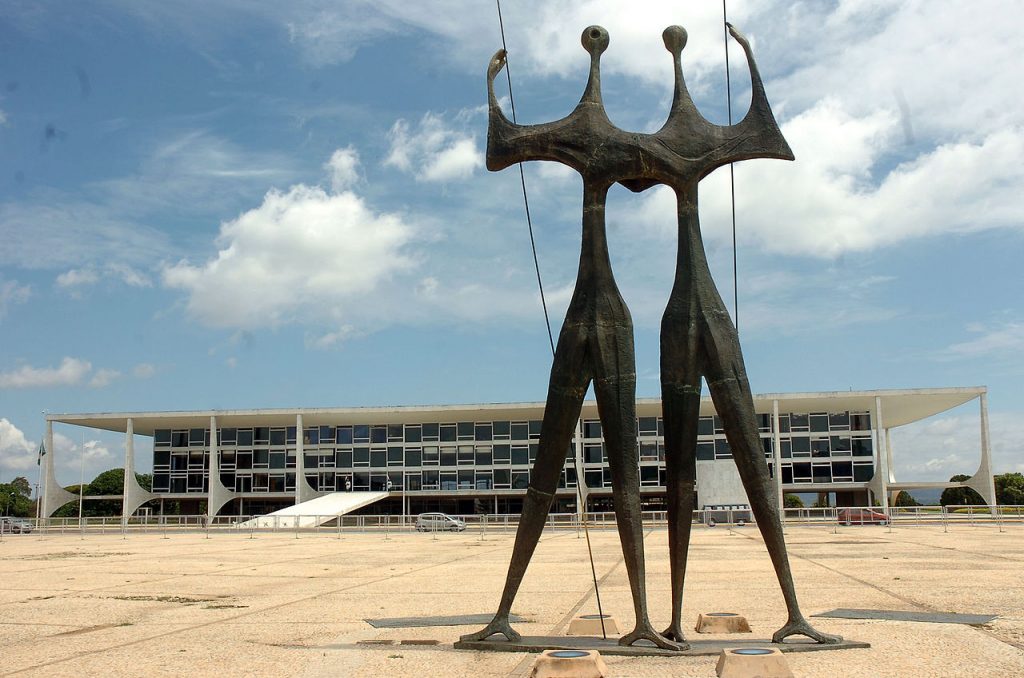
“Everything must be done as simply as possible, but no simpler than that.” Attributed to Einstein
The contemporary Brazilian state, as a result of years of corruption and embezzlement, saw its potential binding agent and entrepreneur weighing too much on the taxpayer now feeling for all of this unable to exercise its role of inducer of national development and promote national pacification ,good how to keep the public machine serving the citizen in his basic needs. . Civil society , for your side , is stuck and without a sting to undertake , lead , control and participate and ,about everything , without money. The population , especially that of the big cities ,is somehow severely involved , as plaintiff or defendant ,or as an eyewitness to the most scabrous crimes, that show a uncontainable explosion of bestiality and also prove here the failure of the state. The prison population , for general awe ,when you don't die in prison, dies when leaving her. Finally, the political class at all levels used and abused of the prerogatives contained in the Citizen Constitution and set up a feedback system that transforms each politician into a pasha and every member of his team in a ganizara that carries your bags with impunity.
In the past we would have had the opportunity to shape the state minimum when all capitalist countries have done so . But , instead of we were increasing the state that now became a pachyderm.
The minimal state was conceived in the years 60 to offer to citizen education and health and security and justice ,no more. But Brazil did not succeed. The Citizen Constitution was invented in 88 that detonated the public coffers and the moral conscience of Brazilians one once the electoral political system became associated with contractors and other mighty .And all who partake of the public life know this sinful marriage between the contractor and the political , what did the car wash leave openly proved. And so the minimal state became the state maximum .
There is only one way left before this inclement picture of gigantism , rebuild , how can we, the happiness and work of the Brazilian . I think a good start is to reduce the public machine as small as possible, it will result no more the maximum state nor the minimum state but the nano state, term borrowed from physics : infinitely small ( dwarf ).
The nano state as we conceive it is the one that favors the initiative of man in his hard work for living. And removes the politician from the command of politics and social life. A reduction of political cadres is due to the radical cut of 90 % of the cadres of the municipal councils. Let us remember that the cameras draw attention away from politicians inland from business activities , what slows down business lawful city and increase the haggling;
we dream for us Brazilians with the disappearance of the legislative assembly where big deals are armed over the governor of duty. I also dream that the institution of the State as a federative entity will disappear and we just have 2 levels of the political sphere : the federation and the municipality; add like this to figure of the governor whose fleet of jets and helicopters also turn into a vain pasha and plenipotentiary.
at the federal level, the congress will become unicameral, will only work the senate , disappearing the camera . and in the senate, only , 60 senators will counterpoint with the president of the nano state.
This huge void power and action will be, now , filled by civil society that will thrive in due to not having taxes to pay, since the nano state little or nothing will do and nothing will get paid for it.
The principle of subsidiarity, in that same sense, recommends that the state should not do what the citizen knows how to do and does. But not It is today that the Brazilian state is bringing to itself activities that combine bad service , the embezzlement , O clientelism and despotism , and the Petrobras is a resounding example of how public affairs should not be managed.
